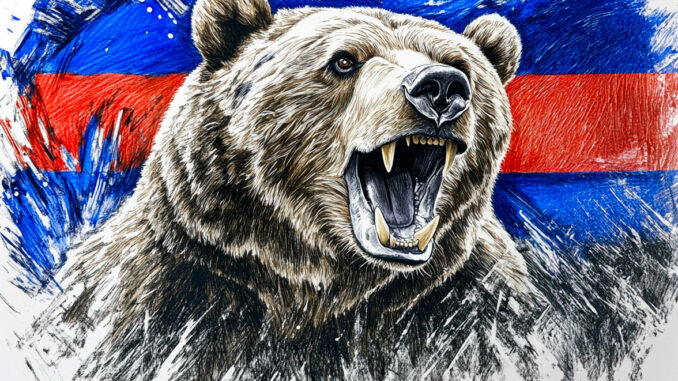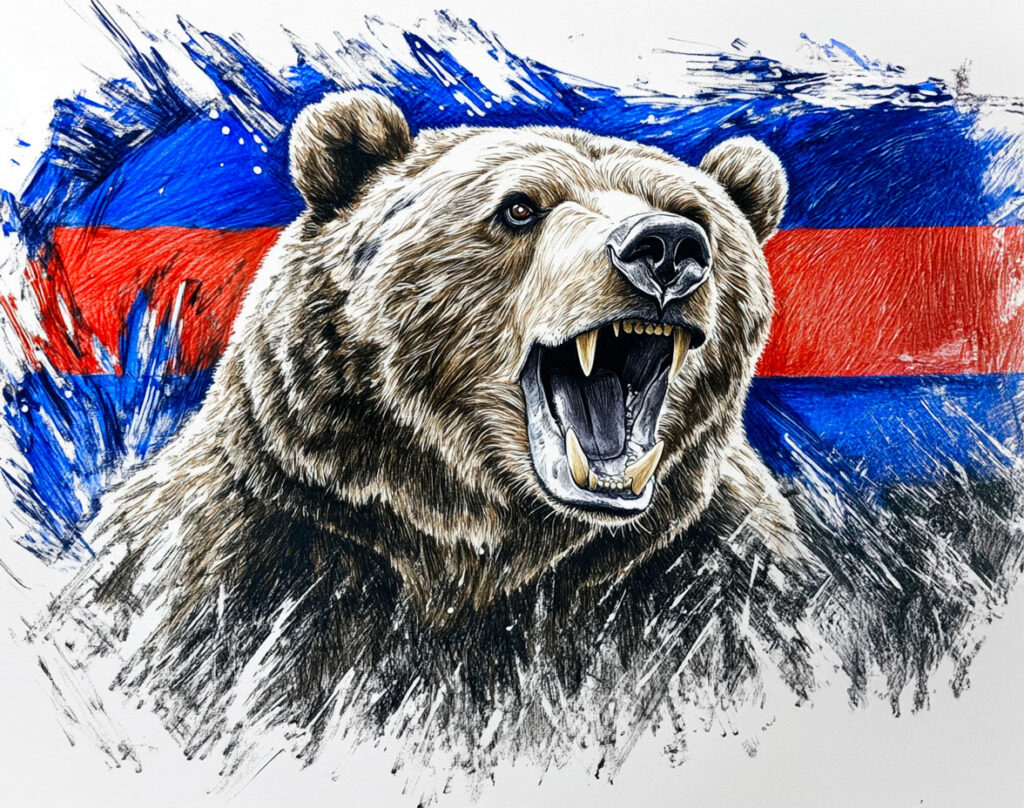
Analysis of the consequences of sanctions and attempts at military reform on Russia’s economy and strategic stability.
Since the annexation of Crimea in 2014 and the invasion of Ukraine in 2022, Western sanctions have severely impacted the Russian economy and accentuated its structural weaknesses. At the same time, attempts at military reform to improve the performance of the armed forces are hampered by persistent problems of corruption, a lack of qualified middle managers, and increased reliance on conscription. This context exposes Russia to the risk of prolonged economic isolation and poses strategic challenges to its defense capability, exacerbated by organizational shortcomings in its military.
The pressure of economic sanctions on Russia
International sanctions, stepped up since the attack on Ukraine, have placed a heavy economic burden on Russia. Since 2014, the United States and the European Union have expanded their sanctions regime, specifically targeting Russia’s banking, energy, and technology sectors. The sanctions, continually increasing since 2022, have reduced Russia’s access to international markets, limiting foreign investment and the import of strategic technologies.
In 2023, sanctions reduced Russian oil and gas exports by almost 25%, representing a loss of revenue of several billion euros for the government. Russia’s Gross Domestic Product (GDP), in decline since the annexation of Crimea, fell by 3.4% in 2022, exacerbated by inflation and the devaluation of the ruble. Restrictive measures have also targeted foreign companies collaborating with Russian entities, leading countries such as Turkey and Qatar to review their trade to avoid repercussions.
The economic cost of sanctions is not limited to direct losses. By 2023, more than 1,000 international companies had left the Russian market, weakening the country’s access to advanced technologies and modern management, essential for modernizing crucial sectors such as defense. Faced with this economic isolation, Russia is trying to strengthen its alliances with nations such as China, although this approach is showing its limits, especially given the lack of support from the UN and other major economic powers.
Military reforms and persistent structural weaknesses
Despite efforts to restructure its army, Russia faces organizational difficulties that limit the performance of its armed forces in the field. Since the collapse of the Soviet Union in 1991, several attempts at reform have been made to adapt military capabilities to modern realities, but the results have been mixed. The heavy losses in Ukraine in 2022 revealed shortcomings in military leadership and troop training, with many officers sent to the front without sufficient preparation.
The lack of qualified non-commissioned officers (NCOs) represents a major obstacle. In modern armed forces, NCOs play a key role in training and managing soldiers, but Russian tradition, dating back to the Soviet era, has left this responsibility to junior officers. This model has reduced the army’s ability to operate autonomously and effectively in the field. Conscripts, most of whom serve for one year, receive limited training, and many leave the army at the end of their service.
Corruption** continues to erode Russian military capabilities. Many officers and officials embezzle resources, sometimes even selling military equipment on the black market. In 2023, an internal investigation revealed that 40% of equipment stocked for reserve forces was inoperative or incomplete, complicating efforts to reconstitute forces after the heavy losses suffered in Ukraine. This systemic corruption, encouraged by a lack of oversight, undermines the effectiveness of reforms and increases the army’s logistical difficulties.

The impact of dependence on conscription and troop morale
Conscription, though criticized, remains essential to maintaining Russia’s military strength. However, conscription is viewed negatively by the population, particularly since many young soldiers have been deployed to Ukraine despite promises of non-engagement in conflict zones. In 2022, over 300,000 conscripted soldiers were called up, but the desertion rate has also risen, reaching almost 15% according to some unofficial estimates. This situation is leading to a drop in troop morale, fuelled by difficult living conditions and the phenomenon of hazing, which is particularly widespread in Russian barracks.
The rate of suicide among conscripts is one of the highest among modern armies, linked to the stress and mistreatment suffered during service. Attempts to modernize infrastructures and improve living conditions for soldiers have not been enough to curb this phenomenon. The lack of psychological support and the often spartan living conditions make the military experience a difficult one for young soldiers, contributing to a negative public image of the Russian army.
Military capabilities and the uncertain future of reform
In 2023, Russia had around 800,000 active soldiers, a long way from the goal of an army of one million men. This figure includes many conscripts and soldiers on short-term contracts, some of whom refused to re-enlist after the heavy losses in Ukraine. The difficulties of maintaining a competent and committed military force are prompting Russia to consider new measures to attract recruits, including offering financial incentives, although the effects of this strategy remain uncertain.
Reserve equipment, intended to reinforce units in case of need, has proved inadequate due to problems with maintenance and misappropriation of equipment. Many tanks and armored vehicles stored in Russia require major repairs before they can be deployed, a recurring problem since the post-Soviet era. This inability to maintain a functional stock of equipment compromises the Russian army’s projection capabilities in the event of a prolonged crisis.
An army in search of reform and an economy under pressure
The combination of international sanctions and ineffective military reforms has plunged Russia into a delicate situation. The impact of economic sanctions is limiting the country’s ability to modernize its military infrastructure, while structural weaknesses in the army are undermining the credibility of Russia’s deterrent force. In a context where conscription is increasingly unpopular and corruption gangrenes the military establishment, Russia is struggling to field an army capable of meeting the contemporary demands of modern warfare.
The challenges facing Russia reflect a crisis that goes far beyond the battlefield, revealing deep-seated institutional and economic weaknesses. To regain a stable position on the international stage, Russia will not only have to rethink its military strategies, but also consider long-term political and economic reforms to restore confidence, both domestically and internationally.
War Wings Daily is an independant magazine.